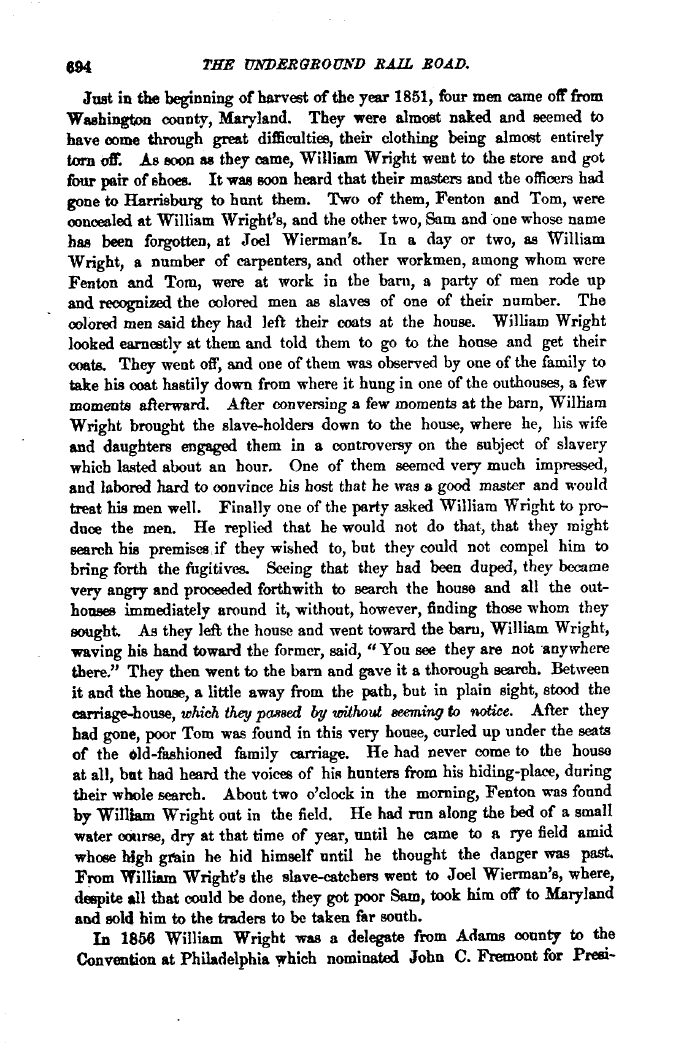 |
||||
 |
||||
| 694 THE UNDERGROUND SAIL SOA.D. Jnst in the beginning of harvest of the year 1851, four men came off from Washington county, Maryland. They were almost naked and seemed to have come through great difficulties, their clothing being almost entirely IOTB off. As soon aŤ thej came, William Wright went to the store and got four pair of shoes. It -was soon heard that their masters and the officers had gone to Hamsburg to hunt them. Two of them, Fenton and Tom, were concealed at William Wright's, and the other two, Sam and 'one -whose name has been forgotten, at Joel Wierman's. In a day or two, as William Wright, a number of carpenters, and other workmen, among whom wore Fenton and Tom, were at work in the barn, a party of men rode up and recognized the colored men as slaves of one of their number. The colored men said they had left their coats at the house. William Wright looked earnestly at them and told them to go to the house and get their coats. They went off, and one of them was observed by one of the family to take bis ooat hastily down from -where it hang in one of the outhouses, a few moments afterward. After conversing a few moments at the barn, William Wright brought the slave-holders down to the house, where he, his wife and daughters engaged them in a controversy on the subject of slavery which lasted about an hour. One of them seemed very much impressed, and labored hard to convince his host that he was a good master and would treat his men well. Finally one of the party asked William Wright to produce the men. He replied that he would not do that, that they might search his premises;if they wished to, but they could not compel him to bring forth the fugitives. Seeing that they bad been duped, they became very angry and proceeded forthwith to search the house and all the outhouses immediately around it, without, however, finding those whom they sought. As they left the house and went toward the bsru, William Wright, waving his hand toward the former, said, " You see they are not any where there." They then went to the barn and gave it a thorough search. Between it and the house, a little away from the path, but in plain sight, stood the carriage-house, which they passed by vrithout seeming to notice. After they had gone, poor Tom was found in this very house, curled up under the seats of the dld-fashioned family carriage. He had never come to the house at all, bat had heard the voices of his hunters from his hiding-place, during their whole search. About two o'clock in the morning, Fenton was found by "William Wright out in the field. He had run along the bed of a small water course, dry at that time of year, until he came to a rye field amid whose high gifcin he hid himself until he thought the danger was past From Tfilliam Wright's the slave-catchers went to Joel Wierman's, where, despite all that could be done, they got poor Sam, took him off to Maryland and sold him to the traders to be taken far south. In 1856 William Wright was a delegate from Adams county to the Convention at Philadelphia which nominated John C. Fremont for Presi- |